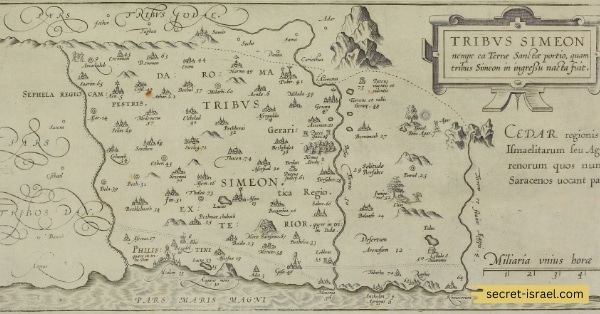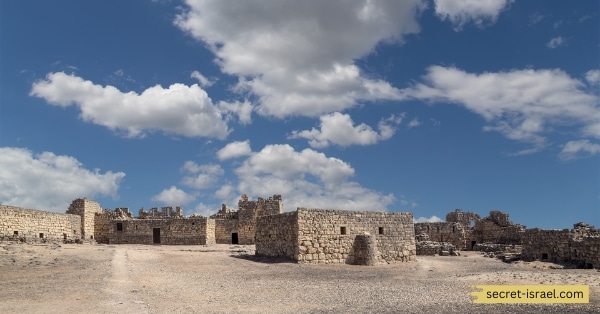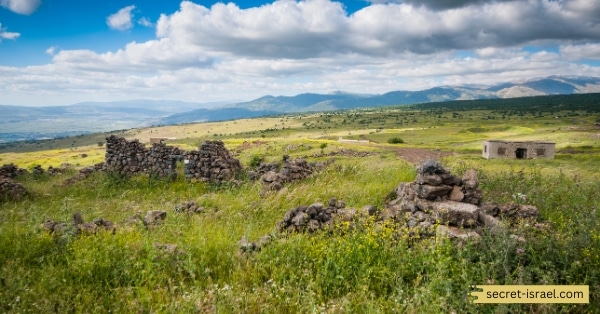The Twelve Tribes of Israel, with their unique histories and traditions, continue to fascinate and inspire. From Reuben to Levi, each tribe played a vital role in the formation of Israel and its rich cultural heritage. Their legacy lives on, shaping contemporary Judaism and the state of Israel. Explore their stories and delve into the ancient Near East’s captivating history.
In this blog post, we will explore the Twelve Tribes, learning about their origins and how they lived. We’ll look at their roles in the Bible and discover how their lives were intertwined with the people of Israel and much more. So let’s get started!
1. Reuben
Reuben was the eldest son of Jacob and Leah and one of the founding members of the Twelve Tribes of Israel. Despite his position as the firstborn, Reuben was not always seen in a positive light. His actions led to a significant loss of respect among his brothers.
According to the biblical account, Reuben slept with one of his father’s concubines, Bilhah, and this act of blasphemy greatly angered Jacob and resulted in Reuben losing his birthright position.
Despite this, Reuben was still counted among the twelve tribes of Israel and his descendants went on to be a part of the nation of Israel. Today, Reuben is still remembered as one of the key figures in the formation of the country and his legacy continues to be felt among those who are a part of the Jewish faith.

2. Simeon
The tribe of Simeon was located in the southern part of the land of Canaan. The Simeonites were a significant force in Israel’s history, and their legacy can be traced back to the time of Joshua. The tribe played a vital role in the conquest of the land of Canaan.
They were one of the two tribes that attacked the city of Shechem and destroyed it. Simeon’s descendants were also part of the judges and prophets of Israel. The tribe was gradually dispersed.
Some members of the tribe went to the kingdom of Judah while others migrated to the Northern kingdom. The tribe of Simeon thus continues to be an essential part of the history and culture of Israel.

3. Judah
The tribe of Judah was one of the largest and wealthiest tribes, and it was home to the Israelite monarchy through the reigns of King David and King Solomon. The name “Judah” itself means “praise.”
It was chosen because Leah, the wife of Jacob, praised the Lord after giving birth to her fourth son, Judah. Judah also produced the line of David, through whom the Messiah was to come. The tribe of Judah played a vital role in the history of Israel, and its impact is still felt today.

4. Issachar
The ninth son of Jacob, and was one of the four tribes that settled on the east side of the Jordan River. Issachar’s territory encompassed the fertile Jezreel Valley, which was renowned for its abundant harvests.
Its people were known for their agricultural skills, particularly in the cultivation of wheat, barley, olives, and grapes. Issachar played an important role in the history of ancient Israel, contributing soldiers to the armies of King David and King Jeroboam.
Today, the legacy of the tribe of Issachar lives on through the Jewish people, who continue to honor their ancient roots and traditions.

5. Zebulun
Among the twelve tribes of Israel, Zebulun stands out as one of the most significant. Originally part of the descendants of Jacob, Zebulun was blessed by Moses to be a seafaring tribe.
In fact, they were known for their ability to navigate the waters and even traded along the Mediterranean coast. Their location near the sea made them a strategic element in the Israelite army as their ships could provide much-needed reinforcements in times of war.
Despite the challenges they faced, Zebulun’s importance is undeniable, and their legacy continues to inspire people to this day. As one of the twelve tribes of Israel, Zebulun is a testament to the strength and perseverance of an entire nation.

6. Dan
Its name originated from Jacob’s son, Dan, upon his birth. The tribe first settled on the southwestern coast of Israel’s Mediterranean Sea. The tribe’s main occupations were trade and commerce and their location further facilitated their involvement in the same.
In the book of Judges, Dan’s legacy is seen as central to the triumphs of Israel. The tribe displayed numerous acts of valor and patriotism throughout the Torah, making it one of the most respected tribes in Jewish history.
Despite experiencing challenges like other tribes, Dan emerged victorious and stands tall as a testament to the strength and resilience of the Jewish people.

7. Gad
They were known for their military prowess and their ancestors fought alongside the other tribes to conquer the land of Canaan. According to the Old Testament, the tribe of Gad settled on the eastern side of the Jordan River and was skilled in raising livestock.
In times of war, they were known for their bravery and expertise in battle. Gad’s territory was also rich in resources, making them a wealthy tribe. Despite their strength and wealth, however, Gad’s role in biblical narratives is somewhat minor compared to other tribes.
Nonetheless, the tribe of Gad remains an important part of Israel’s history and serves as a reminder of the diversity and complexity of the nation’s origins.

8. Asher
The tribe of Asher was known for its expertise in trade and commerce, particularly in the production of high-quality olive oil. They were also known for their close proximity to the Mediterranean Sea and their ability to navigate its waters.
Despite being a smaller tribe, the people of Asher were hardworking and resourceful, often living in areas with rich agricultural resources. Their contribution to the fabric of Israelite society was significant, and their descendants continue to carry on their legacy to this day.

9. Naphtali
The tribe of Naphtali was known throughout history as a skilled group of warriors, with a reputation for bravery and strength. They were also known for their hunting abilities, and the area in which they settled was rich in wildlife.
The tribe of Naphtali was located in northern Israel, and while they were not one of the more prominent tribes, they played an important role in the formation of Israel as a nation. Today, the tribe of Naphtali continues to inspire and influence Jewish culture and tradition.

10. Joseph
Joseph, the eleventh son of Jacob, played a crucial role in the establishment of the Twelve Tribes of Israel. Despite being sold into slavery by his own brothers, Joseph’s unwavering faith in God and ability to interpret dreams earned him favor with the Pharaoh of Egypt.
Through his insightful management of Egypt’s resources during a severe famine, Joseph was able to provide for his family and eventually reunite with them. Through his two sons, Ephraim and Manasseh, Joseph became the father of two tribes within Israel.
His legacy as a wise leader and devoted servant of God continues to be celebrated by Jewish tradition to this day.

11. Benjamin
Benjamin was the youngest of Jacob’s twelve sons and the only one born in the Promised Land. He was known for his strength and agility, as well as his skill with the bow and arrow. According to the Bible, the tribe of Benjamin was one of the twelve tribes of Israel and was located in the southern part of the kingdom.
They were skilled warriors and were well-known for their bravery in battle. In the New Testament, the apostle Paul was from the tribe of Benjamin, and he was known for his dedication to spreading the gospel.
Overall, the tribe of Benjamin played an important role in the history of Israel and left a lasting legacy still celebrated today.

12. Levi
Levi and his descendants were chosen by God to serve as priests and ministers of the Tabernacle and later the temple. Moses and his brother Aaron were both from the tribe of Levi, and Aaron became the first high priest of Israel.
The tribe of Levi also had an important role in teaching and instruction, as they were charged with preserving and transmitting God’s laws to the people of Israel.
Levi’s commitment to spiritual leadership and devotion set them apart and allowed the tribe to play a vital role in ensuring the spiritual well-being of the Israelites. Its legacy continues to this day, with the Levites still being considered as one of the honored tribes of Israel.

In conclusion
Exploring the Twelve Tribes of Israel is a fascinating journey that sheds light on the rich cultural and religious history of this region. From biblical accounts to modern-day tribal identities.
The history of the twelve tribes offers a wealth of knowledge and understanding for anyone interested in the ancient Near East. The tribes were not only linked by their genealogical roots but also by their shared faith and traditions, which played a crucial role in shaping the identity and culture of the Israelites.
The significance of the twelve tribes is evident in their lasting influence on contemporary Judaism and the state of Israel, making the exploration of their legacy a rewarding experience for anyone interested in Jewish history and culture.












